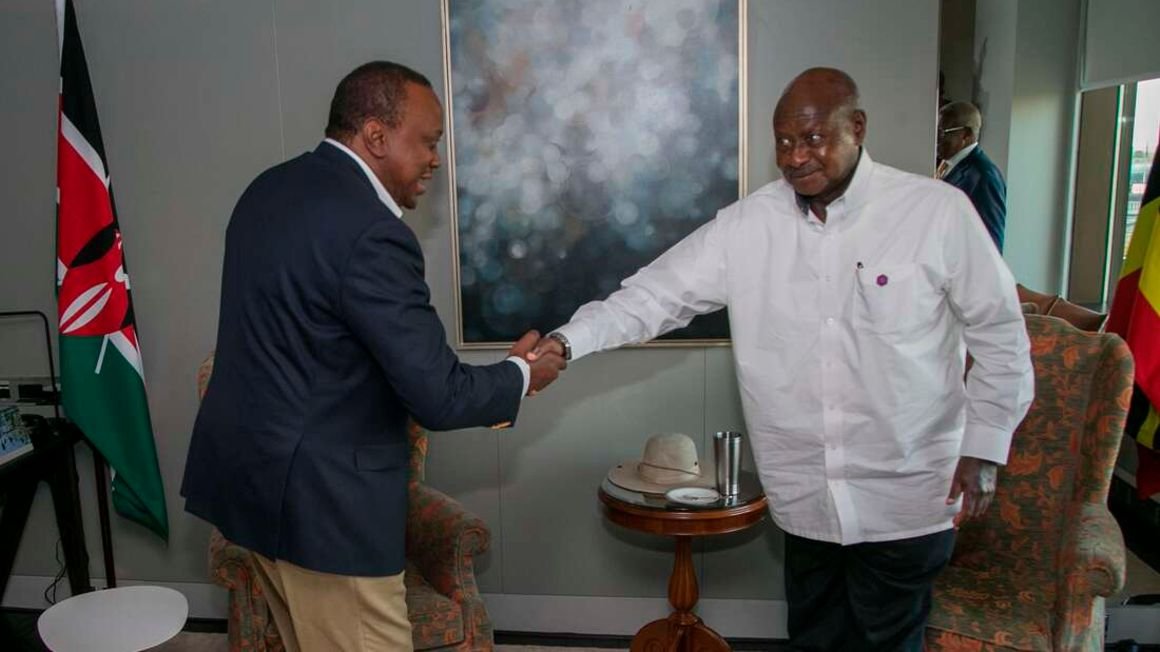President Uhuru Kenyatta with President Yoweri Museveni of Uganda during a past event. PHOTO | PSCU
Kenya has moved to avert a diplomatic spat with Uganda over a decision to localize fuel cargo meant for Kampala.
“We had a meeting with the Ugandan ministry and their technical people because they were afraid that they were going to have fuel shortage. We explained to them and also sent them their stocks in our facilities and they are satisfied,” Mr Kamau said on Monday.
Oil marketers allocate 60 percent of their fuel imports to the local market and 40 percent for the neighboring countries including Uganda.
Kenya’s decision to localise the two vessels at end of last month rattled Kampala, prompting the lawmakers to order Ugandan lawmakers to push for the release of all cargoes meant for the transit market.
“Our country is likely to be enveloped into new fuel prices, which may lead to escalating prices and yet this is something we have been suffering from in the recent past,” Ugandan lawmakers said last week.
The government also slashed fuel allocations for oil marketers that had increased their quotas for the neighbouring countries adding to the supply fears that have gripped Uganda.
Reduction of the fuel quotas is being implemented in three phases as the government moves in to tame the oil marketers whom it accused of economic sabotage.
Kenya has since last month been grappling with supply hitches that led to a three-week fuel shortage prompting the government to order localisation of fuel cargoes meant for the export market.
The crisis that was blamed on fuel hoarding by oil marketing firms, has since eased as supplies to petrol stations improve after the government raised pump prices in a monthly review.
Uganda like other neighbouring countries offer oil marketers higher returns because fuel prices are not controlled in addition to being paid instantly unlike in Kenya where the State compensation delays.
Energy officials in Uganda will on Wednesday report to Parliament on the talks with Nairobi, coming barely a month after Kampala sought fixed monthly transit petroleum product quotas to ease the shortage.
Kampala demanded a fixed allocation of 110,660 cubic metres of petrol and 110,400 cubic metres of diesel transported through Kenya to satisfy fresh demand following the reopening of its economy from the coronavirus lockdowns.
Energy Permanent Secretary Pauline Irene Batebe wrote the letter after a meeting by oil marketers operating in Kampala linked the fuel supply crisis facing the country to inadequate allocations from Kenya.
Uganda wants its oil marketing firms to continue being supplied under the open tender system through their sister companies in Kenya. By John Mutua, Business Daily






